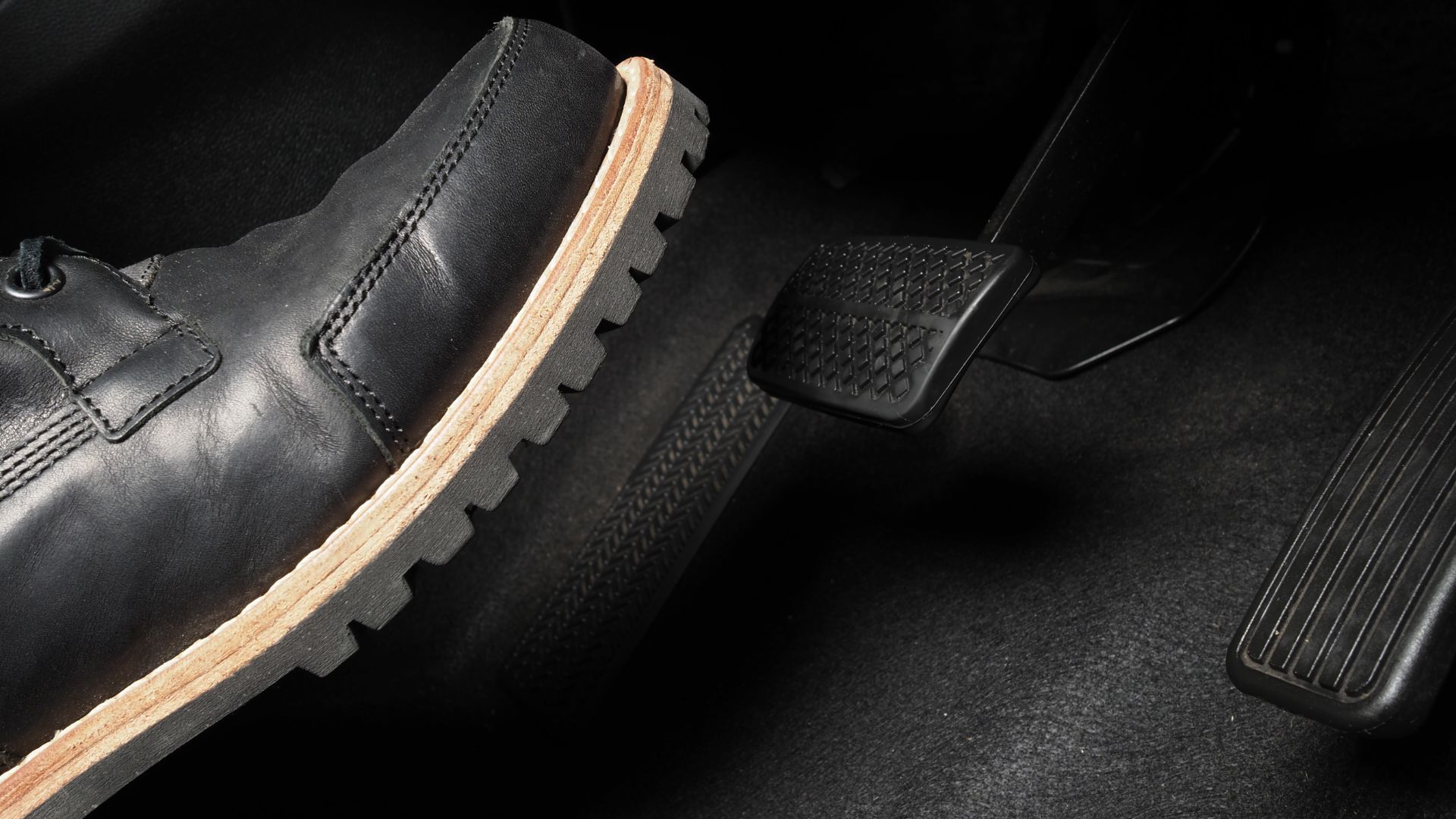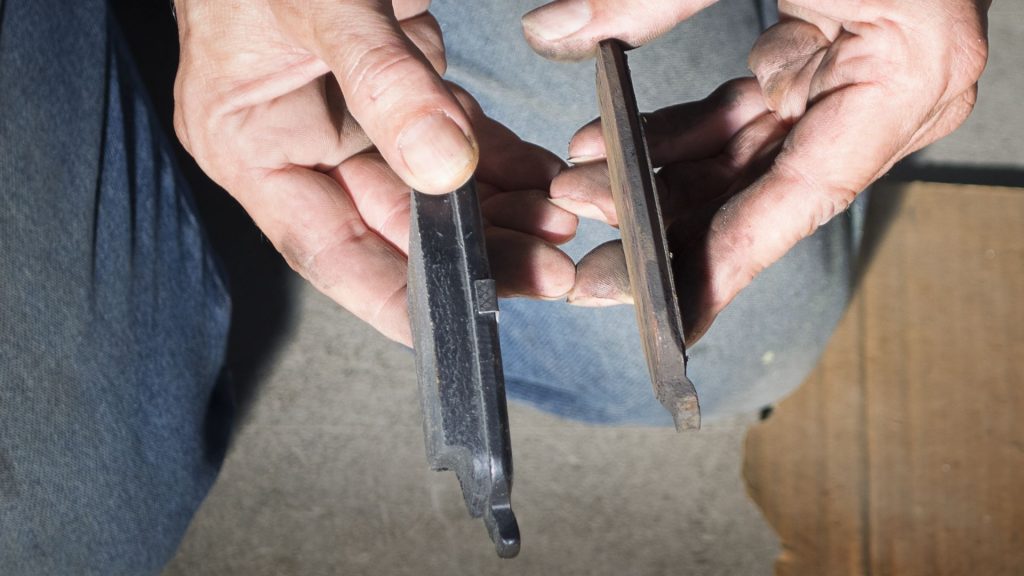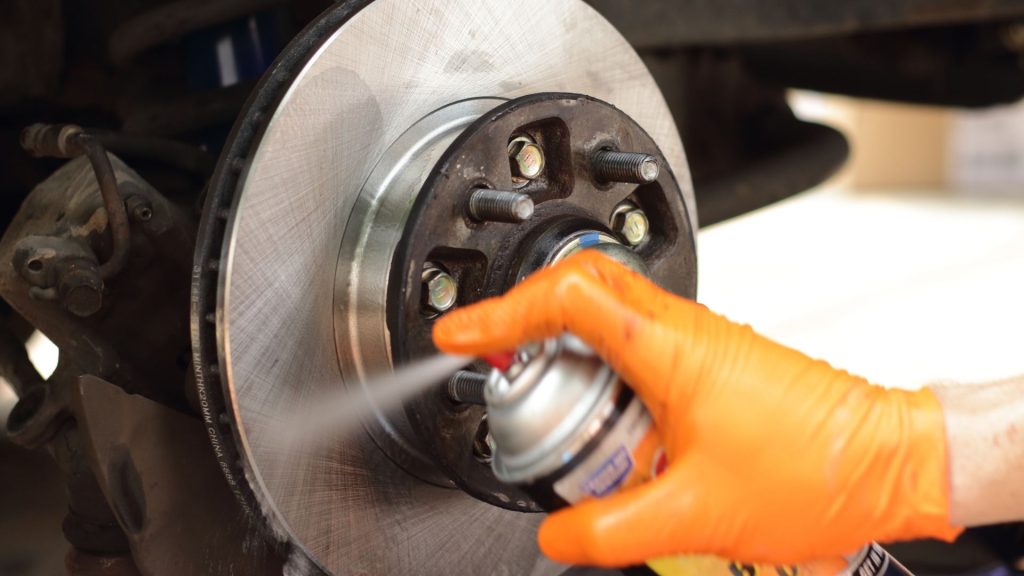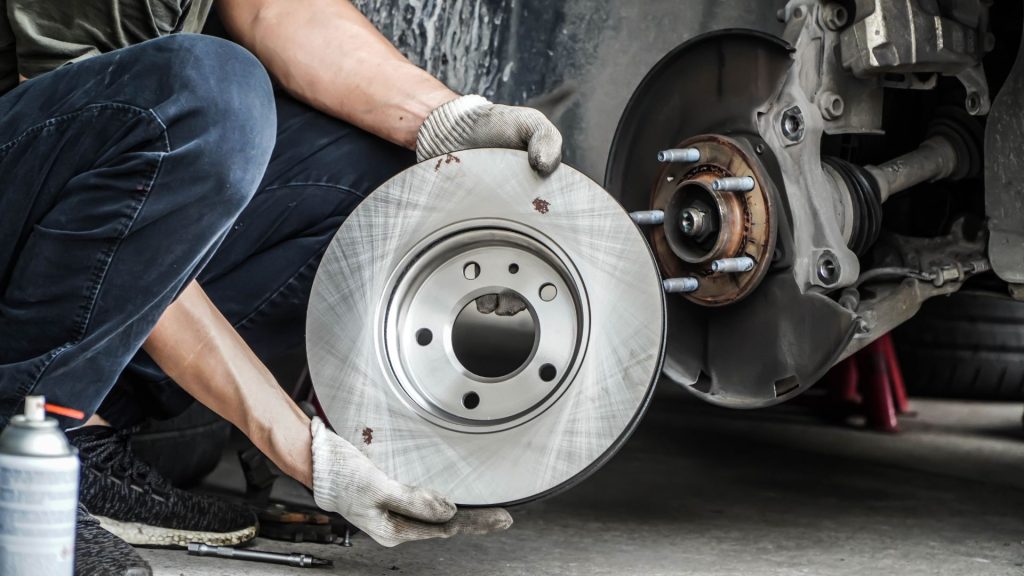Why are my brakes grinding after new pads and rotors?
Investigate the reasons for brakes grinding after installing new pads and rotors.

A common question that most drivers may ask is; why do my brakes grind after new pads and rotors? The reason your new brake pads and rotors are generating a squeaking or squealing sound is not rocket science and can get fixed with little or no stress at all.
Grinding brakes with new pads and rotors could arise because of poor lubrication, faulty brake calipers, poor quality brake pads, bad rotors, or simply debris lodged between the pads and rotors.
For driver convenience, we have compiled a list of the most common reasons your brakes grind even after installing new pads and rotors. You will also find some steps you can take to fix the problem.
Reasons why your brakes are grinding after new pads and rotors

It is pretty confusing when you install new pads and rotors and still hear noises when you apply the brakes. Drivers get worried because they don’t understand why the brakes still grind. However, if your brakes grind even after installing new pads and rotors, it might be due to one of these reasons.
Poor lubrication
When installing new brake pads, rotors, or calipers, it is essential to have them sufficiently lubricated to promote the smooth movement of one over the other. Applying inadequate lubricant to the brake system will cause the metal parts to rub against each other, causing the grinding noise you may hear.
Also, poor lubrication of the pads and rotors can easily damage them. To avoid replacing your new brake pads and rotors immediately after getting them, ensure they are well lubricated.
Worn out brake pads
You may think that you just got new brake pads and shouldn’t have worn out so quickly; however, your worn-out brake pads may arise due to poor lubrication. When your brake pads and rotors rub against each other because of inadequate lubrication, they generate the grinding noise you hear.
Insufficient lubrication will wear out your new brake pads beyond salvaging in a short while. Drivers should note that worn-out brake pads are an immediate successor to poor lubrication.
Faulty brake calipers
Brake calipers contribute significantly to bringing your car to a stop when you step on the brake pedal. It slows the car’s wheels by creating friction with the brake rotors. When the brake calipers have gotten used over time, the heat generated from the braking system can quickly weaken and break down the seals inside the calipers.
The weakened brake calipers would be unable to perform their function correctly, hence the grinding noise. You might want to consider replacing your brake calipers when you notice this.
Poor quality brake pads and rotors
Sometimes, drivers try to save money and go ahead to purchase inferior quality parts like brake pads and rotors. When they do this, they are oblivious that they may frequently have to replace these parts due to their poor quality.
If you purchased low-quality brake pads and rotors, your brakes are susceptible to grinding. Opting for original brake pads and rotors is vital to avoid replacing them more often and causing damage to your vehicle.
Debris lodged between pads and rotors
As you drive regularly, your car will likely pick up debris like rocks, stones, or solid particles. When this debris finds its way between the brake pads and rotors, they cause a scraping or grinding sound that is uncomfortable for drivers.
If left unattended, the residue can further damage your brake pads or rotors, and you may require an early replacement. Pebbles or stones stuck between your pads and rotors can also cause vibrations in your vehicle.
Rust formation
Often drivers park their vehicles outside overnight or for extended periods, which can negatively affect the pads and rotors. When cars get parked for a long time without usage, the moisture in the atmosphere mixes with the dust and sticks to the brake pads and rotors, forming rust.
The pad and rotors rust cause the brakes to grind when you step on the brake pedal. If you parked the car overnight, the rust formation quickly wears off when you go for a drive. However, you might need new pads and rotors if the rust is due to more extended periods of not using the vehicle.
Worn out shims
The brake shims fit between the brake pads and the brake calipers, and they help reduce the noise generated when the pads rub against the calipers. When your brake shims get worn out due to prolonged usage periods or inadequate lubrication, they no longer provide the padding that helps correct the imperfections that may lead to noise. Your brakes are prone to grinding when the shims have worn out.
Faulty wheel bearings
Although unlikely, your wheel bearings can contribute to the grinding sound you hear when you apply the brakes. The noises generated from faulty wheel bearings range from low grinding sounds to loud vibrations you can feel around the vehicle.
Wrongly installed pads and rotors
A notable cause of brakes grinding after installing new pads and rotors is poor installation. When the brake pads get misaligned with the rotors, they generate a grinding noise when you step on the brake pedal. It is essential to consult the services of professional mechanics, as wrongly installed pads and rotors can cause damage to your vehicle.
How to fix brakes grinding after new pads and rotors

Driving around with your brakes grinding when you step on the brake pedal feels uncomfortable and distressing, and it is also annoying knowing you just had the pads and rotors changed. However, there are ways you can fix the problem of your brakes grinding after new pads and rotors.
Some of the ways to fix grinding brakes after new pads and rotors include;
Lubricate the brake system generously
An insufficiently lubricated braking system can cause grinding and also damage the vehicle. Ensure that the brake pads, rotors, calipers, and every component that makes up the brake system get lubricated adequately to prevent damage to your braking system. The lubrication of these parts promotes the smooth movement of one over the other and reduces the rate of wear.
Replace worn-out parts
Over time, brake pads, rotors, calipers, and other components that make up the braking system may wear out. To ensure your braking system’s superb functionality, you must replace all worn-out parts with new ones. Replacing worn-out brake components helps preserve all the details of your car that could get affected due to worn-out brake parts.
Opt for quality brake components
To save money by purchasing poor-quality brake pads, rotors, and calipers, you may lose more money because you will have to regularly replace the inferior parts when they get damaged almost immediately. To avoid spending money suddenly, you must opt for original quality brake components, which would last for more extended periods before requiring replacement.
Consult the services of professional mechanics
Sometimes drivers opt to carry out the replacement and repairs of their braking system on their own. An experienced driver with the technical know-how to service and replace the brake components might do the job.
However, suppose you have no idea how to go about servicing and replacing parts of your vehicle. In that case, you should consult the services of a professional mechanic to reduce the risk of damaging your vehicle.
How to change your brake pads and rotors

You might want to change your brake pads and rotors to save on replacement costs. Here is a brief on how to go about it;
- Ensure your vehicle is parked on a flat surface and install wheel chocks.
- Use a wheel jack and raise the car.
- Unscrew the tire and remove the wheel.
- Remove the bolts and the caliper by turning the wheel to the left or right.
- Take out the worn-out pads and rotors. Remove the brake caliper and the brake caliper bracket to access the rotors.
- Ensure to clean the rotor mounting surface and also the new rotor.
- Install the new rotor and the new brake pads.
- Install the calipers and ensure not to over-tighten the caliper bolts.
- Install the wheels and lower the vehicle.
However, if you can’t replace the pads and rotors yourself, employ the services of a professional mechanic.
To get rid of debris lodged between your brake pads and rotors, reverse about 50 to 100 feet to allow the debris to fall out.
Our take
Grinding brakes are discomforting to the driver as the grinding could lead to severe problems. Regularly inspecting your braking system is a vital way to spot any discrepancies and have them fixed before they cause any damage.
Furthermore, investing in your vehicle’s quality parts helps eliminate replacement costs from purchasing poor-quality ones.
How long before new brakes stop grinding?
Your new brakes should sit well after steady driving and careful braking, usually after the first 500 miles.
How long before new brakes stop grinding?
Your new brakes should sit well after steady driving and careful braking, usually after the first 500 miles.
Is it normal for new brakes and rotors to make noise?
New brakes and rotors may give off a grinding noise signifying that the pads and rotors may be stiff, not lubricated adequately, or the rotors are wet.
What can cause new brakes to grind?
Your newly installed brakes may grind due to poor lubrication, poorly installed brake components, or debris lodged between the brake pads and rotors.
Why are my brakes grinding if my pads are good?
Poor quality brake pads are a common reason your brakes grind after installing new brake pads and rotors.